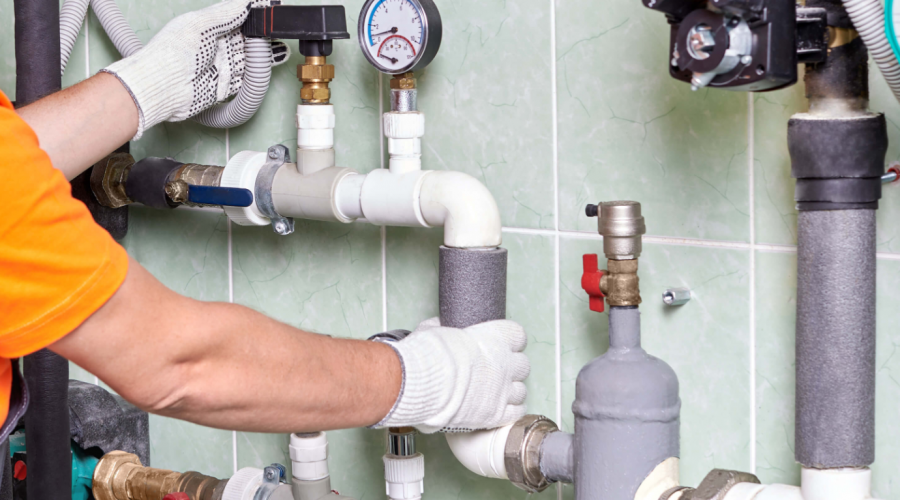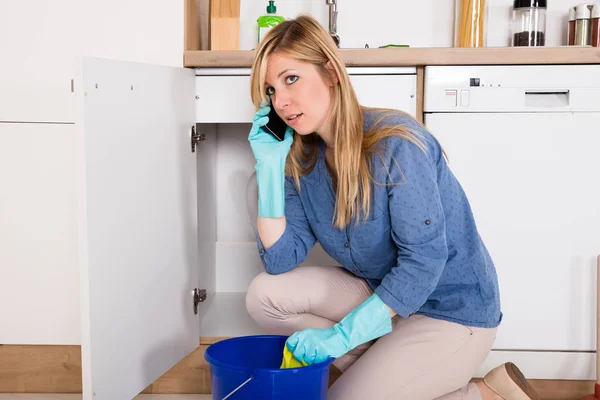Just how do you really feel in regards to What to Do During a Plumbing Emergency?

Pipes emergencies can strike at any time, creating stress and anxiety and potential damages to your home. Whether it's a ruptured pipe, a clogged drainpipe, or a leaky faucet, recognizing just how to handle the situation till a professional plumber shows up can save you from more problems. This article gives vital emergency pipes suggestions to help you alleviate damage and reclaim control during a plumbing dilemma.
Turn Off the Water
The initial step in any pipes emergency is to turn off the water supply. For local issues, such as a dripping faucet or commode, turn off the shutoff near the component. In the case of a major leakage or burst pipeline, find your home's main water shut-off shutoff and turn it off immediately. Recognizing the location of these shutoffs in advance can save useful time during an emergency situation.
Address Little Leaks with Momentary Fixes
Tiny leaks can quickly become considerable troubles if left untreated. Use these momentary fixes till professional aid arrives:
While these solutions aren't permanent, they can aid decrease water loss and damage.
Unclog Drains Pipes Securely
A blocked drainpipe can be a frustrating and untidy concern. Right here's just how to tackle it:
If these techniques do not function, stay clear of making use of too much pressure, as it may worsen the blockage.
Manage Overflowing Toilets
An overflowing toilet can cause immediate mayhem. Right here's what you ought to do:
Shut down Your Hot Water Heater
In particular emergency situations, such as a burst pipe, it's smart to turn off your water heater. This prevents getting too hot or damages to the system when water stops flowing. Switch off the power supply to the hot water heater (electrical or gas) and let it cool down to stay clear of possible risks.
Temporarily Stop a Ruptured Pipeline
A burst pipeline can cause considerable water damage in mins. To alleviate the problem:
Call a professional plumber promptly to deal with the problem completely.
Deal With Frozen Piping Very Carefully
In colder environments, frozen pipelines are a typical emergency. If you presume a frozen pipeline:
Avoid More Damage
Taking quick activity to minimize damages can save you money and time over time. Here's just how:
. Have an Emergency Situation Plumbing Set
Prepare a basic plumbing emergency situation set to take care of minor problems effectively. Your set needs to include:
Having these tools accessible can make a significant distinction in your ability to manage emergencies.
Know When to Call an Expert.
While quick fixes can aid temporarily, certain plumbing problems call for prompt professional attention. Call a plumbing technician if:.
Promptly contacting a professional guarantees the issue is fixed correctly and prevents further problems.
Conclusion.
Pipes emergency situations can be overwhelming, but with the best understanding and devices, you can take care of the scenario effectively until assistance shows up. By turning off the supply of water, attending to little leakages, and making use of short-lived solutions, you can minimize damage and keep your home safe. Remember, these suggestions are short-term services; always seek advice from a certified plumbing technician to manage the source of the issue. Prep work and fast thinking are your finest allies in any type of plumbing emergency.
Expert Tips for Emergency Plumbing Repairs
Plumbing emergencies can be incredibly stressful and inconvenient. Whether it’s a burst pipe, a clogged drain, or a leaky faucet, these common plumbing emergencies need immediate attention to prevent further damage to your home. But before you panic, it’s important to understand the basics of plumbing repairs and the steps you can take to address these emergencies. In this article, we will share some expert tips to help you navigate through these situations and minimize potential water damage.
Identifying Common Plumbing Emergencies
Leaky pipes and faucets Clogged drains and toilets Burst pipes Low water pressure Water heater problems Essential Tools for Plumbing Repairs
Plunger: Useful for unclogging toilets and drains Adjustable wrench: Needed for tightening or loosening nuts and bolts Pipe wrench: Ideal for gripping and turning pipes Tape measure: Necessary for accurate pipe measurements Plumber’s tape: Helps create watertight seals Understanding Emergency Plumbing Services
Emergency plumbing services are designed to provide immediate assistance for unexpected plumbing issues that can cause significant damage to your home, business, or health. These services are typically available 24/7 and are staffed by experienced plumbers who can quickly diagnose and repair a wide range of plumbing problems.
When a plumbing emergency strikes, time is of the essence. Whether it’s a burst pipe flooding your basement or a gas leak posing a serious risk, emergency plumbing services ensure that help is just a phone call away. These professionals are equipped with the tools and expertise to handle any situation, minimizing damage and restoring your plumbing system to proper working order.
What Constitutes a Plumbing Emergency?
Burst pipes or water supply lines: These can cause extensive water damage and need immediate repair to prevent flooding. Gas leaks or suspected gas leaks: Gas leaks are extremely dangerous and require prompt attention to avoid potential explosions or health hazards. Sewer backups or overflows: These can lead to unsanitary conditions and significant property damage. Clogged drains or toilets causing water to overflow: Overflowing water can damage floors, walls, and other structures. Leaks or water damage causing structural damage: Persistent leaks can weaken the structural integrity of your home or business. No hot water or heating: A lack of hot water can be more than an inconvenience, especially in colder months. Common Causes of Plumbing Emergencies
Aging or corroded pipes: Over time, pipes can deteriorate, leading to leaks or bursts. Improperly installed or maintained plumbing fixtures: Faulty installations or lack of maintenance can result in unexpected failures. Tree roots or other debris infiltrating your sewer line: Roots can grow into pipes, causing blockages and backups. Frozen pipes or water supply lines: In colder climates, pipes can freeze and burst, leading to significant water damage. High water pressure or sudden changes in water pressure: Excessive pressure can strain pipes and fixtures, causing them to fail. Natural disasters such as floods or earthquakes: These events can disrupt your plumbing system and cause severe damage. Steps to Minimize Water Damage
Locate the water shut-off valve: Knowing where the valve is can help you quickly cut off the water supply to the affected area. Turn off the water heater: If there’s a risk of water coming into contact with the heating element, make sure to turn off the water heater to avoid potential accidents. Open faucets and drain pipes: By opening faucets and drain pipes, you can relieve pressure and empty any standing water. Collect and contain water: Use towels, buckets, or bins to collect water and prevent it from spreading to other areas of your home. https://leecountyplumbingandwellservice.com/expert-tips-for-emergency-plumbing-repairs/

Do you like reading about Expert Tips for Managing a Plumbing Emergency Until Help Arrives? Create a remark down below. We'd be pleased to listen to your views about this blog. Hoping that you visit us again in the near future. Make sure you take a moment to promote this blog post if you enjoyed it. Thanks a bunch for your time. Kindly pay a visit to our website back soon.
Get A Free Quote